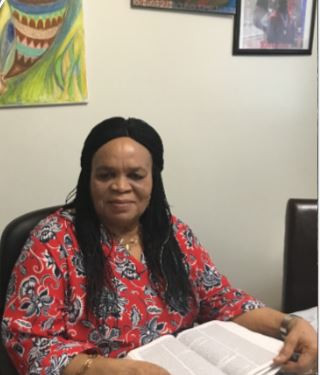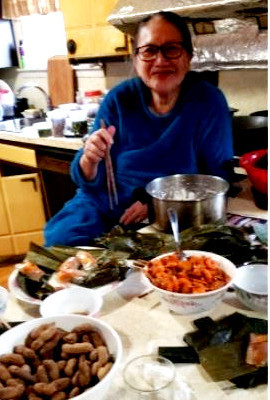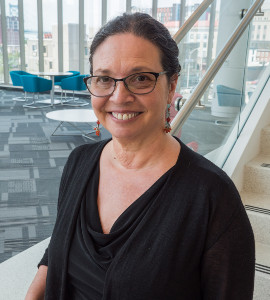Rutgers‒Camden Nursing Students Learn to Care For Elderly Patients Through Ethnocultural Diversity Photo Essays
It’s been said that a picture is worth a thousand words.
For Rutgers University‒Camden nursing students, those images may now open the book on how to care for the needs of a diverse elderly population.
In the “Aging and Health in Global Communities” course, students created photo essays of grandparents and elderly neighbors to present to the entire class as their final class project. Captions that accompany the photos include ethnic, cultural and historical notes that tell the story of the older person’s values.

Elder from Nigeria of student Precious Emelumba
By looking at other people’s families and hearing their stories, the photo essays of elders, in turn, allow Rutgers–Camden students to gain an unbridled glimpse into the evolution of health care services for older adults, along with the joys of aging.
“We would love to have health care providers have a sense of aging as a thing of beauty,” says Nancy Cresse, a Rutgers School of Nursing‒Camden clinical assistant professor. “In the class, we are trying to remind students of the full lives that people live. I want them to see their patients as somebody who is loved, someone who is at the top of their family.”
The elders featured in the photos reflect the diversity of the Rutgers‒Camden campus. The photos show a variety of ethnicities from across the globe, including the Dominican Republic, Japan, Patagonia and Africa.

Elder originally from Vietnam featured in student Daniel Le's photo essay
The photo essays reveal more information about the older adults and offer a view of where and how they live. Some are dressed in Western clothing, while others wear traditional cultural outfits, such as an Indian sari or African attire.
One student presented a photo of the family matriarch in the Caribbean, cooking a meal in her outdoor kitchen. The photo caption quotes the woman saying that she prefers cooking outdoors in her new, vented stove, although she does have an indoor open fire she used for cooking for many years.
Students in the class were surprised to learn that the outdoor stove is safer because it reduces the risk of burns from the open fire, and from inhaling harmful carcinogens from the smoke.
“She enjoys caring for the family and cooking for everyone, yet the grandchild who lives in the United States sees it as very basic accommodations and is kind of embarrassed by it,” says Cresse. “But the pride and joy of the woman being able to feed her family and neighbors from this new healthy stove is apparent in the pictures.”

Nancy Cresse
The photo essay project gives students a new perspective, challenging their earlier views on aging.
Learning about the meaningful lives of older people from a wide range of backgrounds helped many students improve their perceptions of older people, Cresse says.
“By working directly with an older person in a collaborative manner, the student gets to see how vital the elder is,” says Sheila Linz, a Rutgers‒Camden assistant professor of nursing and a partner with Cresse in the project. Linz, a former professional photographer who designed the photo essay project, suggested to Cresse to incorporate the photo essays into the course.

Sheila Linz
“This project is designed to have students experience elders in a different light, maybe help dispel negative stereotypes, and help students see the full elder experience in a more favorable light. We hope it makes a difference in their practice as nurses,” says Cresse.
The course is featured in Cresse’s and Linz’s article, “Addressing Ageism and Ethnocultural Diversity With a Photo Essay Project,” published in The Journal of Nursing Education.


